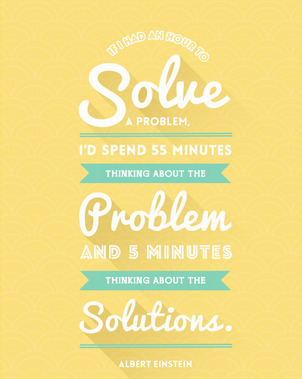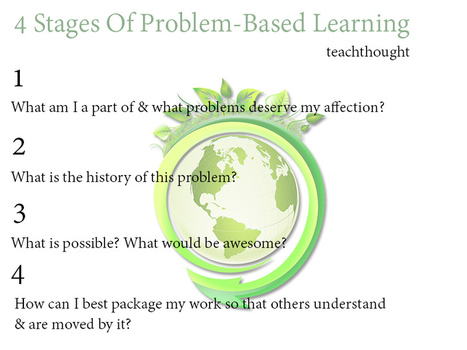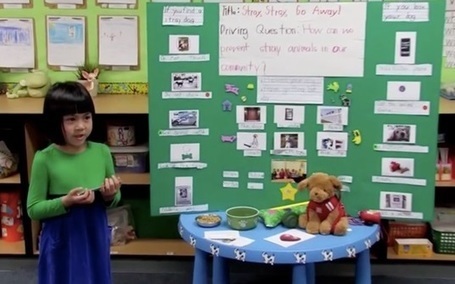Problem-based learning (PBL) was first introduced to the field of education in the 1960s by medical education specialist Howard Barrows, who argued that
Get Started for FREE
Sign up with Facebook Sign up with X
I don't have a Facebook or a X account
 Your new post is loading... Your new post is loading...
 Your new post is loading... Your new post is loading...
|

Brad Reitzel's curator insight,
July 5, 2014 8:43 AM
this is a very insightful article that helps lay out the similarities and differences between project based, inquiry based and problem based learning styles. a good read for anyone looking to try them, and understand the differences between them. 
Ignacio Sáenz de Miera's curator insight,
November 6, 2014 5:03 AM
Muy útil esta referencia para poder orientarse en el campo de las metodologías procesuales. 
Mrs. Reinagel's curator insight,
August 4, 2015 11:32 AM
Are you looking for a cheat sheet to understand the differences between Problem-Based Learning, Project-Based Learning and Inquiry-Based Learning? This post will lend a hand. Each type of learning is given a definition, example, teaching tip, and where to go to get more information. If you are thinking of trying one of these types of learning and are not clear on which to choose this post may provide some insight to help you make your decision. Click through for more information. |













Always wondered… Thx Beth Dichter
When you read or hear the words PBL do you think Problem-Based Learning or Project-Based Learning? This post discusses problem-based learning, and provides a historical background before discussing defining it. .The post then compares problem-based learning with project-based, inquiry-based and case-based learning before moving on to provide ten recommendations. Three are below.
* Clearly define your purpose for doing problem-based learning
* Develop ill-structured problems
* Emphasize depth over breadth
To learn more about these three recommendations and view the other seven click through to the post. You may find that problem-based learning is already being used do some degree with your learners, and this post may provide some ideas on how to move into this direction more efficiently.
When you read or hear the words PBL do you think Problem-Based Learning or Project-Based Learning? This post discusses problem-based learning, and provides a historical background before discussing defining it. .The post then compares problem-based learning with project-based, inquiry-based and case-based learning before moving on to provide ten recommendations. Three are below.
* Clearly define your purpose for doing problem-based learning
* Develop ill-structured problems
* Emphasize depth over breadth
To learn more about these three recommendations and view the other seven click through to the post. You may find that problem-based learning is already being used do some degree with your learners, and this post may provide some ideas on how to move into this direction more efficiently.